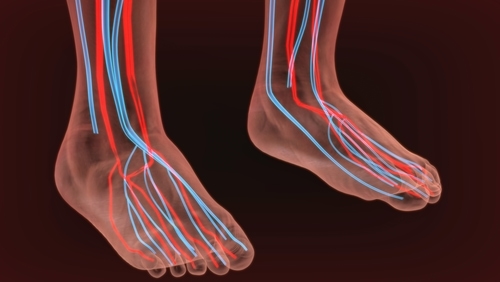
I recently was paid a visit by two scientists from the Medtronics medical device company. They came to our office and surgery center to help expand the way I evaluate and monitor improvement of nerve function during the nerve surgeries I do. It was a messy process and frustrating at first, but by the end of the day, and at the end of the week the entire team had a much greater regard for how this was providing better service to patients, and how useful the information we were gathering will be to share with patients suffering from neuropathy and restless legs.
So, what’s all the fuss about nerve monitoring anyway?
- What is nerve monitoring?
Intraoperative nerve monitoring is an invaluable technique employed during surgery to gauge the surgery’s impact on the affected nerve in real-time. This sophisticated method involves the placement of small needle electrodes within the target muscle area. These electrodes effectively capture and measure the signals transmitted by the nerve when it is stimulated during the surgical procedure. This allows us to obtain precise baseline readings before the nerve is decompressed or released.
One of the significant advantages of intraoperative nerve monitoring is that it provides the surgeon with immediate feedback regarding the progress of the procedure. By continuously assessing the nerve’s signals during surgery, the surgeon can make real-time adjustments and fine-tune the decompression process. This dynamic approach ensures that the desired outcome, such as relieving nerve compression, is achieved effectively and efficiently. It also enhances the overall safety and success of the surgical intervention.
- Why is this important to you, the patient?
Sometimes we are so close to what we do we forget the uniqueness of it, so that’s why I’m writing this blog. Because we do this with every nerve case we perform, we have amassed more experience and data over the past several years than anywhere in the world. We are also the primary center for improving the concept. No other surgery center, hospital, etc. does what we do. Because of this we feel we can better optimize the patient’s outcome.
- Value based medicine: the new buzz word. But what is it?
As healthcare progresses in our society this term has increased in importance. It refers to employing evidence-based medicine and proven treatments in determining the best outcomes for patients. When it comes to the nerve procedures we do, there is no other place that does the volume of work we do for as long as we’ve done it by recording our results before the patient leaves the operating room.
Strong statement? Maybe a little, but we also understand the importance of value based medicine, and believe it’s important to demonstrate to the consumer the effectiveness of a given treatment or procedure so the patient can make the best decisions about their care.
- So, why use nerve monitoring?
Aside from the above, we have a sincere respect for the nerves of the foot and leg-weird as that may seem. Nerve monitoring has long been used during procedures in the back, face, or neck; it’s about time and lower extremity got the same due!
Neuropathy is our passion, and developing procedures, and testing outcomes is important to further the availability of treatments that actually help people who suffer from this debilitating disease.



